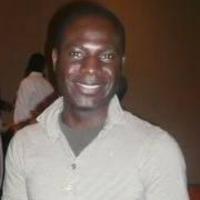
by Sulaimon Giwa
In the aftermath of Abdirahman Abdi’s death at the hands of White members of the Ottawa Police Service (OPS), a new narrative is beginning to emerge in efforts to rebalance the scale of victimhood.
The President and CEO of Bridgehead Coffee, Tracey Clark, recently spoke out about the apparent invisibility and deafening silence of Mr. Abdi’s victims’ voices. During the almost 14-minute interview with CBC Radio’s Ottawa Morning, she seemed to call into question the efforts of a coalition of social justice groups, who she felt unfairly characterized the police as villains and Mr. Abdi as a martyr. According to Ms. Clark, her company has enjoyed a positive and longstanding relationship with the police, who have been helpful in dealing with troublesome customers in the past. The multiple 911 calls to the police on the fatal day were consistent with previous practices. Of the prior calls to the police, however, how many resulted in the death of the alleged perpetrator?
Ms. Clark’s image of police as heroes, beyond reproach, is revisionist. She shows little understanding of the ongoing tension between the police and the Black community. Her view contradicts Black and other non-White racialized groups’ perception of Ottawa police. It is consistent with that of the president of the Ottawa Police Association, Matt Skof, who dismissed race and racism as factors in this case. Moreover, her inattention to why spatial context matters is revealing. She privileges a particular viewpoint that overlooks how gentrification (“urban renewal”) in the Hintonburg and Wellington Village areas, through class and race, has served to displace undesirables in order to make Whites feel more comfortable.
Although seemingly empathetic to Abdi’s death and his family’s grief, Ms. Clark’s insistence on a storyline portraying Mr. Abdi as blameworthy is suspect. Her silence on anti-Black racism in policing substitutes another issue—the voices of the alleged victims—in place of a larger dialogue on centring race and racism. These are not mutually exclusive conversations.
In death, Mr. Abdi is not able to speak for himself. The Justice for Abdirahman coalition is helpful in this regard, especially with ensuring the accountability of police officers implicated in the case, and the OPS as a whole. However, it is not a stretch to say that police treatment of Black people in Ottawa and across Canada is contrary to the principles of equity and good conscience characteristics of a democratic society. These same principles are what the coalition Ms. Clark has criticized seeks to bring us closer to, with the release of their 10-point demand for justice.
Ms. Clark’s recent live appearance on CBC Radio demonstrates how the work of the coalition in no way interferes with the ability of Mr. Abdi’s alleged victims to speak about their own experience. This can be a difficult and painful process. On the other hand, it is troublesome to believe that in order for some people to be heard, others must be silenced. I agree with Ms. Clark when she said that the community must work together. This cannot happen when social justice groups that denounce police brutality in order to affirm that all Black lives matter are being vilified.
The untimely death of Mr. Abdi is another sobering reminder of how much work remains to be done to improve relations between the OPS and racialized communities, including those with mental health issues. The message for real change is what city officials and police leadership needs to hear and act on. The constant display of self-congratulations, on both sides, obscures deeper and unresolved tensions about how police treat certain segments of the citizenry. Significant changes can only occur with courageous leaders taking a stand for social justice.
About the writer
Sulaimon Giwa is a PhD Candidate in social work at York University, with research, policy, and direct practice experience at the community and federal level, in youth health promotions, community and organizational practice in diverse communities, corrections, and policing. He was the coordinator for Community Policing: A Shared Responsibility, a project which received federal funding from the Department of Canadian Heritage to address racism and racial profiling in policing in Ottawa. His applied research program and professional activities centralize critical race transformative pedagogies and theories, as frameworks and analytic tools for social justice and equity. His research interests are in the areas of race and sexuality; critical social work pedagogy; anti-racism/oppression; and the criminal justice system. He has taught in the social work programs at Ryerson University and York University.
